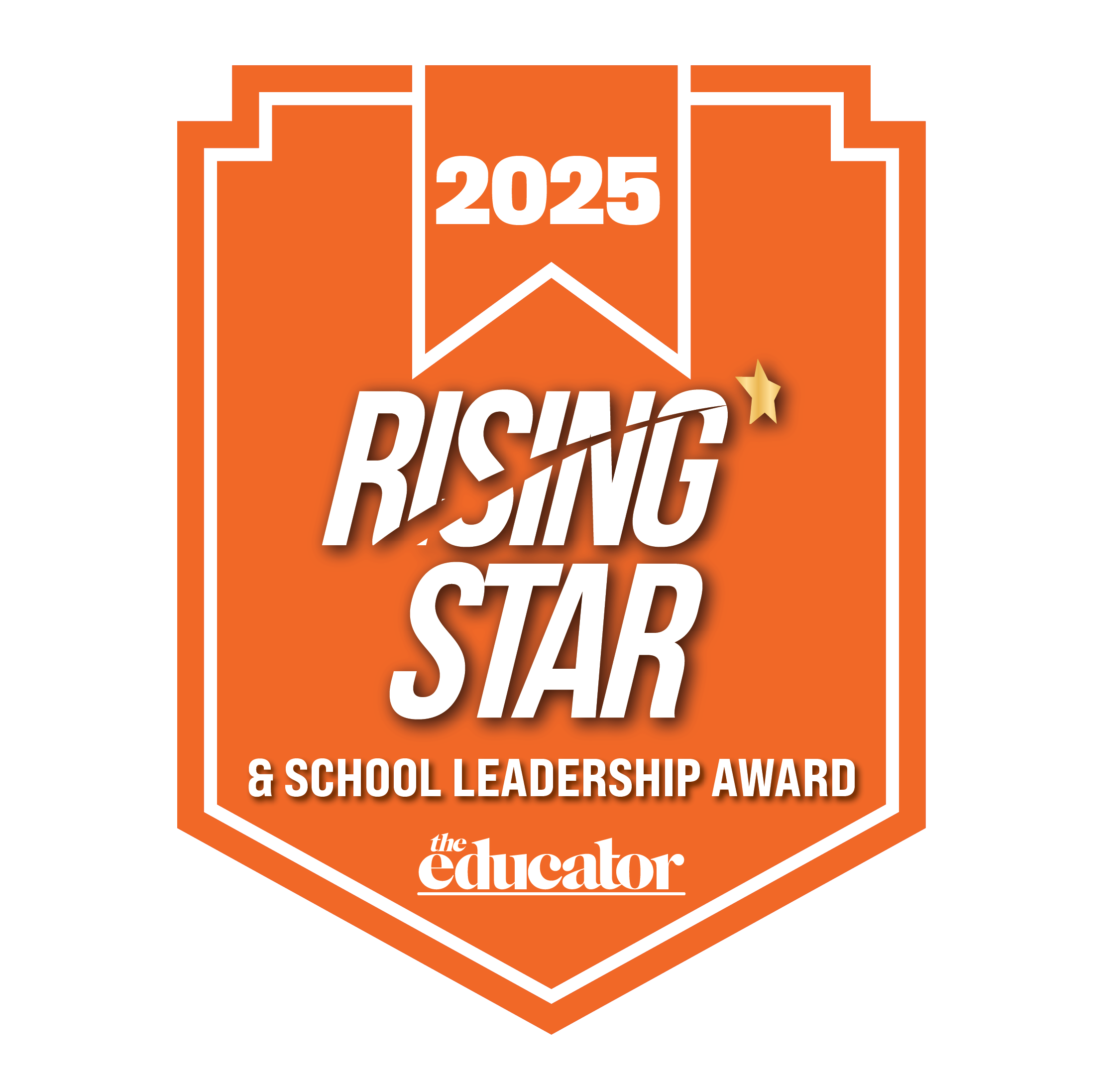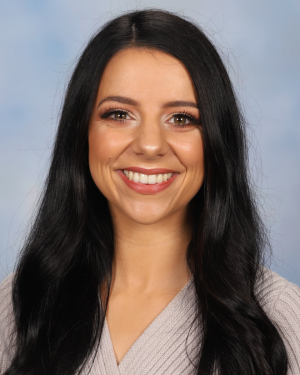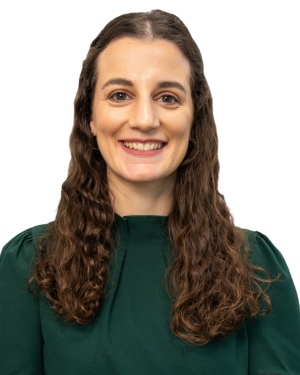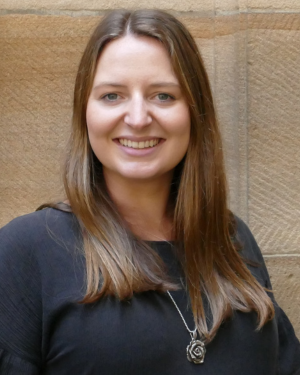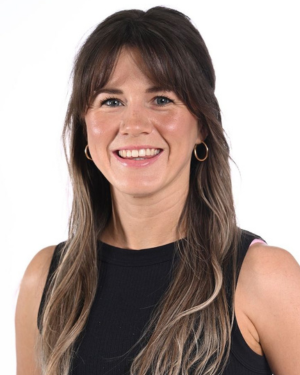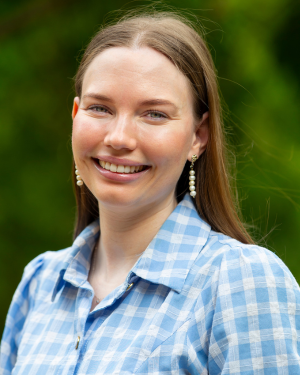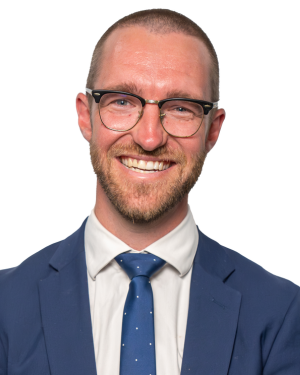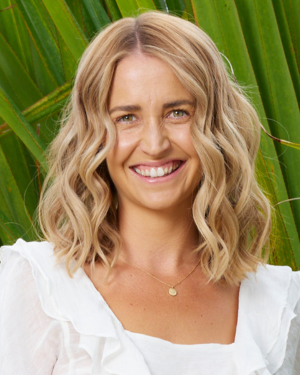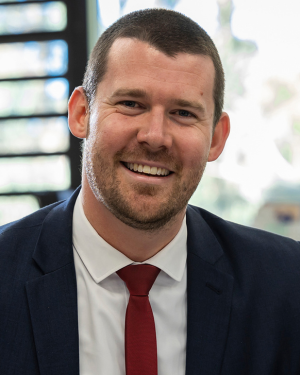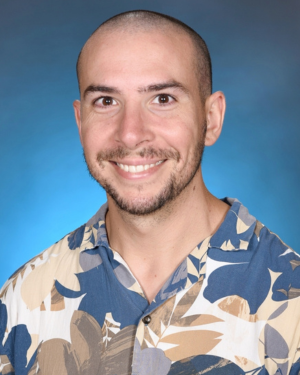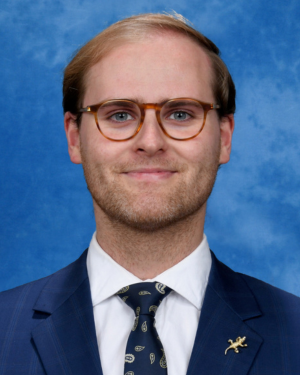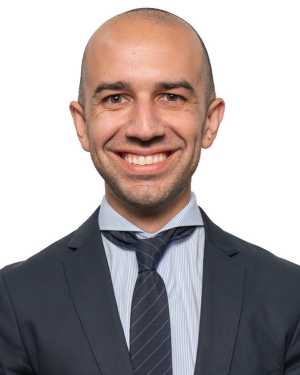- K/12
- Higher Education
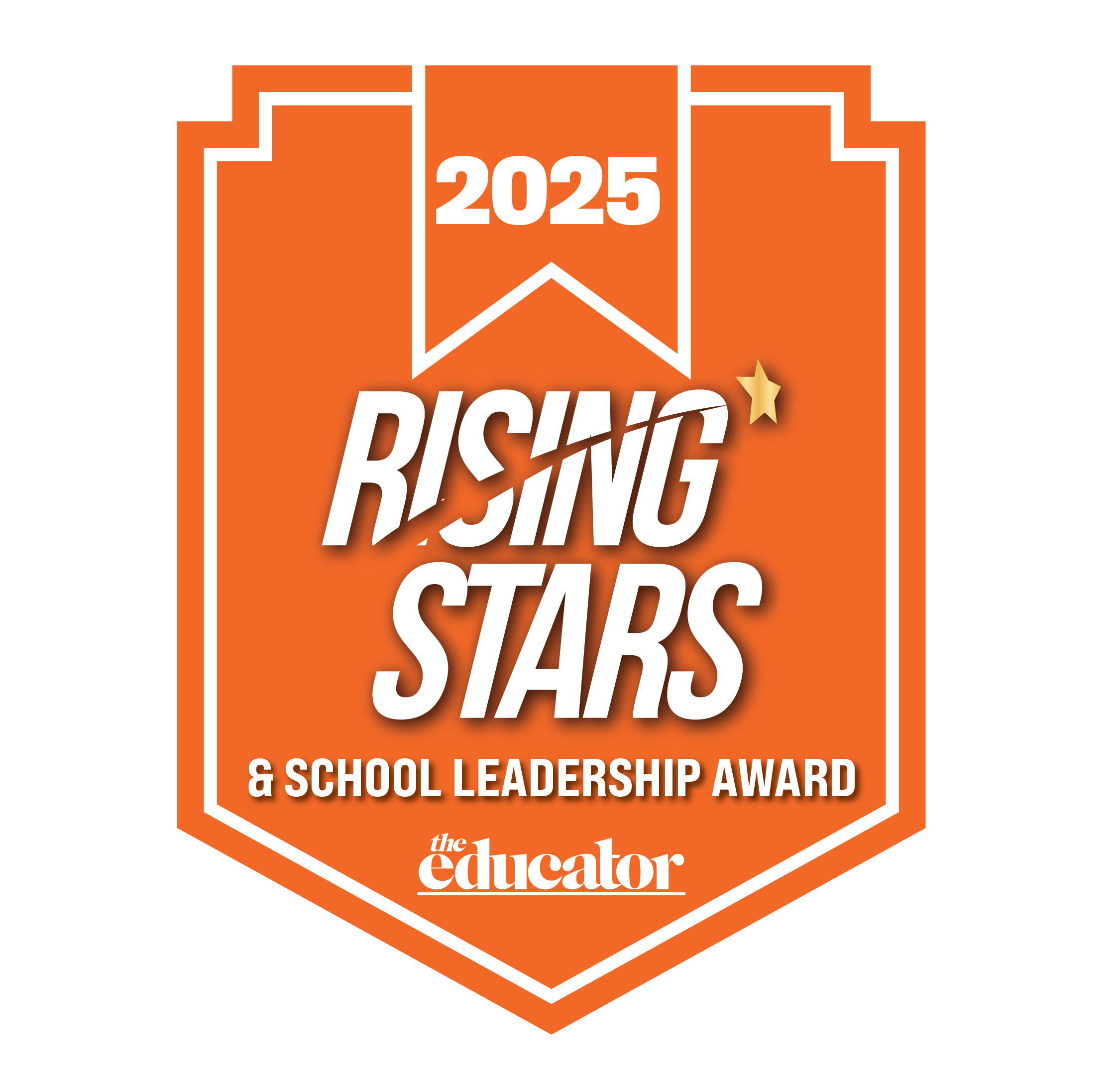
The Top Teachers and Educators in Australia Under 35
Jump to winners | Jump to methodology
Tomorrow’s leaders
“Being a teacher is the most important job in the world, and we don’t have enough of them. We’re now starting to see this turn around,” were the words of Minister for Education, Jason Clare, in early 2025.
He continued, “I want more young people to leap out of high school and want to become a teacher, rather than a lawyer or a banker.”
This vision is beginning to take effect, with data showing that offers from tertiary admission centres increased by 7% compared to 2024. At the forefront of this trend and setting the example for others to follow in their footsteps by showcasing excellence in their careers are The Educator’s Rising Stars 2025.
They are a collection of exceptional teachers under 35 who have demonstrated outstanding leadership, innovation, and achievement in their professional journeys so far.
TE has also recognised schools with the School Leadership Award 2025 for creating dynamic and innovative environments for young educators to thrive. Their success in supporting and enabling the Rising Stars to shine is reflected in a national upward trajectory in admissions to non-governmental schools – 87% of the winners are in this category.
Independent schools have seen an 18.5% jump in admissions between 2019 and 2024, compared to 4.6% across the total school admissions.
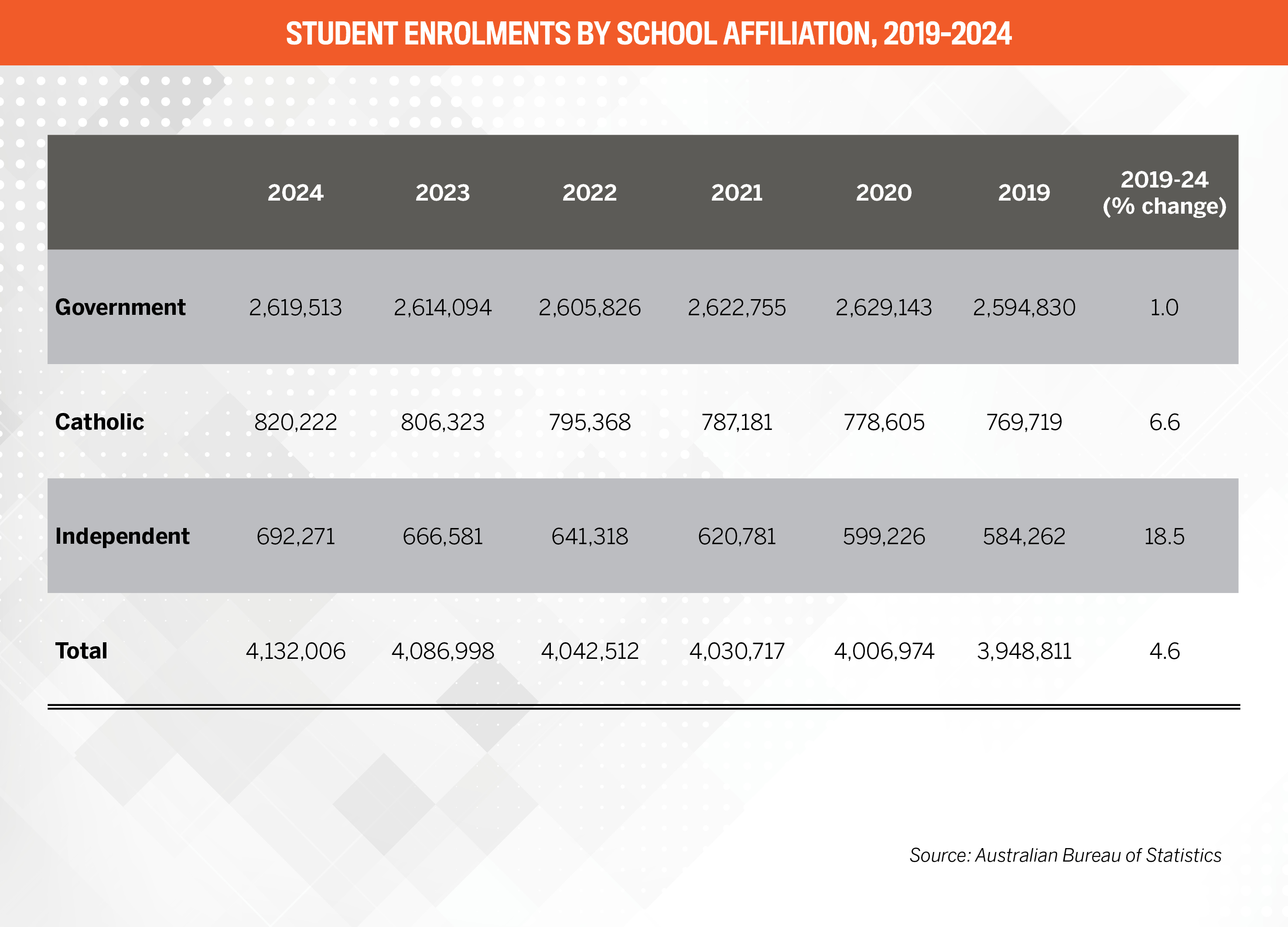
Parents are opting to select the schools they feel deliver the best for their children, which begins with standards inside the classroom. The shifting demographics across Australian education can be traced back to the abilities and dedication of the new generation of teachers. TE’s Rising Stars 2025 are making a difference on a daily basis and also changing the face of the profession.
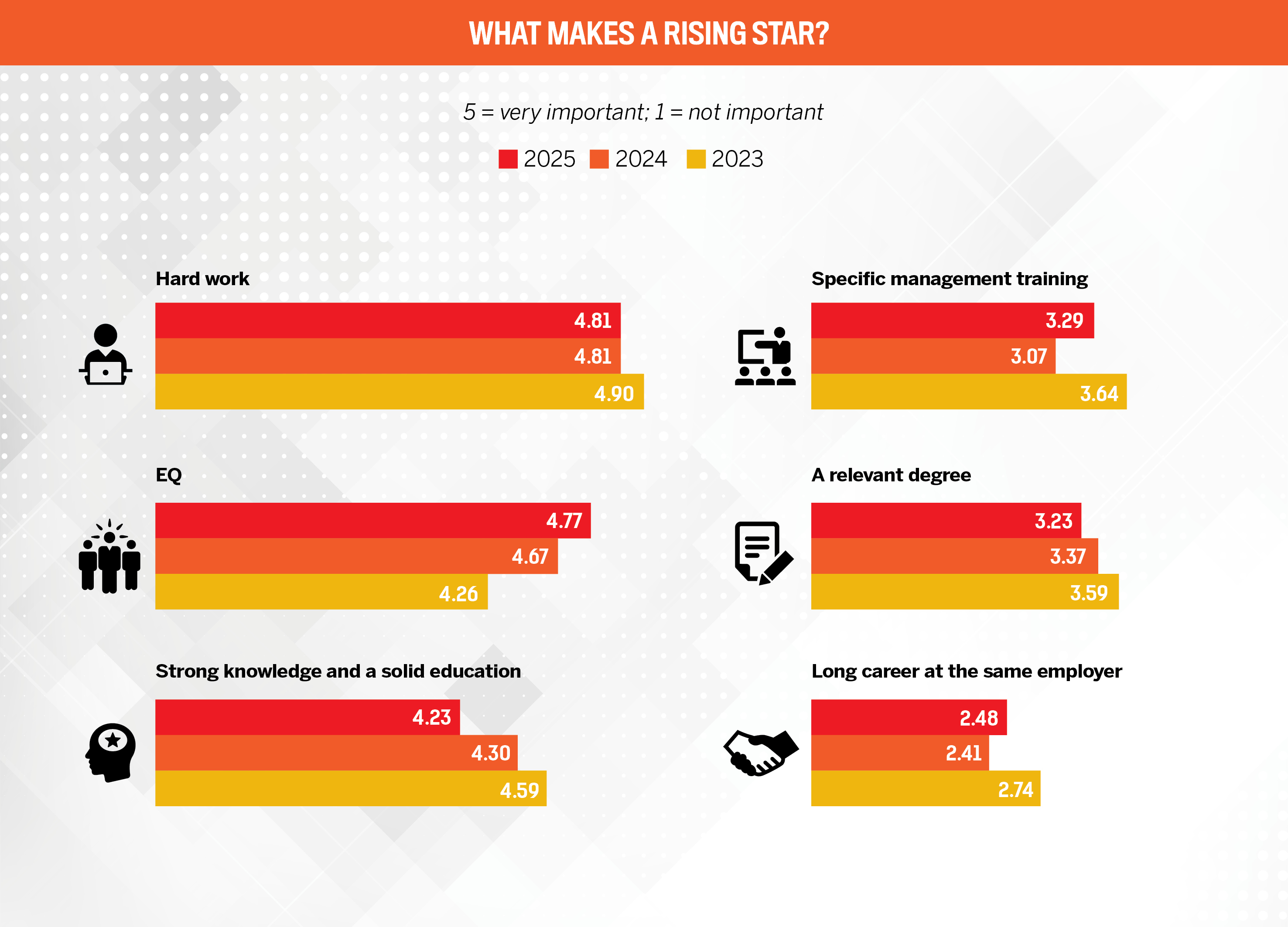
Rising Stars leading Australia’s education sector forward
What defines the best of the new generation of educators is their foresight. They know what they want to achieve and the impact they want to make in their schools and across the sector.
Kali Rouillon seeks to foster a collaborative and inclusive learning environment that emphasises open communication and mutual respect. The primary teacher at Bishop Druitt College in NSW aims to be approachable and provide guidance to colleagues.
“I believe that effective leadership is grounded in creating a culture where reflection and growth are prioritised,” she says. “By encouraging my peers to continually evaluate and adapt their teaching practices, I hope to inspire a collective commitment to lifelong learning and improvement.”
More specifically, Rouillon actively integrates technology into the classroom to enhance student engagement and learning outcomes.
She says, “By staying current with the latest technological advancements and best practices, I can lead by example, demonstrating how technology can be used to meet the diverse needs of students.”


Kali RouillonBishop Druitt College
Whereas long-term impact with a priority on ethics and relationships is the focus of fellow Rising Star Georgia O’Brien. She teaches mathematics and history to students in Years 7–12 at St Margaret’s Anglican Girls School in Qld.
“I want to be a middle leader who balances teaching with leadership, ensuring that decisions remain connected to the realities of teaching in a classroom,” she says. “My journey thus far has led me to reject the notion that leadership is purely trait-based and instead embrace the idea that leadership is developed over time.”
Over the last year, O’Brien led an internal professional development session on the Exam Insights program, sharing with colleagues how the technology can be integrated into Microsoft OneNote more effectively in the classroom.
She has also enthusiastically embraced AI in her teaching to streamline administrative tasks, enhance lesson engagement and differentiate learning materials and concepts. As an example, she uses AI to differentiate lesson plans, give ideas for lesson starters/hooks and suggest concrete activities and resources that can be used to develop conceptual understanding of mathematical concepts.
O’Brien believes it essential to teach students to critically and ethically engage with AI. She has taught students to use AI to analyse their draft essays by inputting specific criteria to receive detailed feedback for improvement and also explored AI’s strengths and limitations.

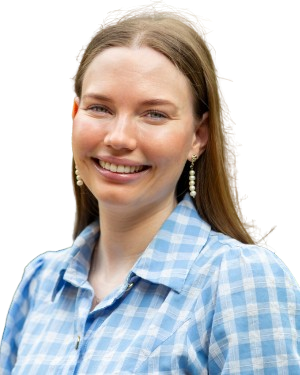
Georgia O’BrienSt Margaret’s Anglican Girls School
Being a team player is the type of leader that Marcellin College’s student wellbeing program and coordinator Christina Cammarano is aiming to become. She admires educators who have senior roles but still take time to be in the staffroom or out in the yard and acknowledge their staff’s efforts.
“I’d love to be the sort of leader that is seen to be among others,” she says. “A great leader is one who is a part of a solution-focused culture and who makes everyone feel valued.”

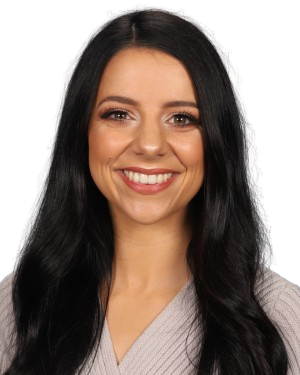
Christina CammaranoMarcellin College
Assistant head of junior school at St Gregory’s College in NSW, Mark Gannon, believes no challenge is insurmountable when approached with innovation, a growth mindset and a strong sense of purpose.
He says, “I aspire to be a leader who is collaborative, kind and visionary, always guided by what is best for students. I believe that students should be at the centre of their learning, and I work to empower them as active participants in their education.”
Gannon is an advocate for building capacity in both students and staff by leading professional development opportunities that support staff in refining their teaching practice, implementing innovative pedagogies and enhancing student engagement.
“I believe in the power of strong community connections, working closely with parents and the wider school community to create an environment where students thrive,” he says. “I want to be a leader who is approachable, supportive and forward-thinking, ensuring that every decision is made with a long-term vision that benefits our students, staff and school community.”

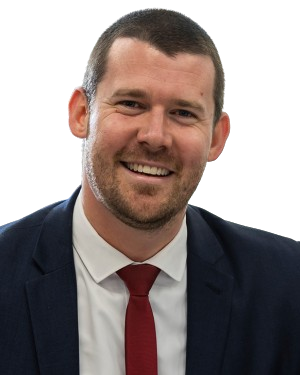
Mark GannonSt Gregory’s College
St Gregory’s runs a Graduate Teacher Internship, a 12-month program designed for new graduates with mentorship from experienced educators, diverse classroom experiences across K–6 and targeted professional development. The interns build confidence in classroom management, differentiated teaching and inquiry based.
Gannon says, “I work closely with these interns in a coaching capacity, guiding goal setting and ensuring access to resources and support. We have been running this program for three years, with all our interns thus far transitioning seamlessly into full-time classroom teaching roles.”
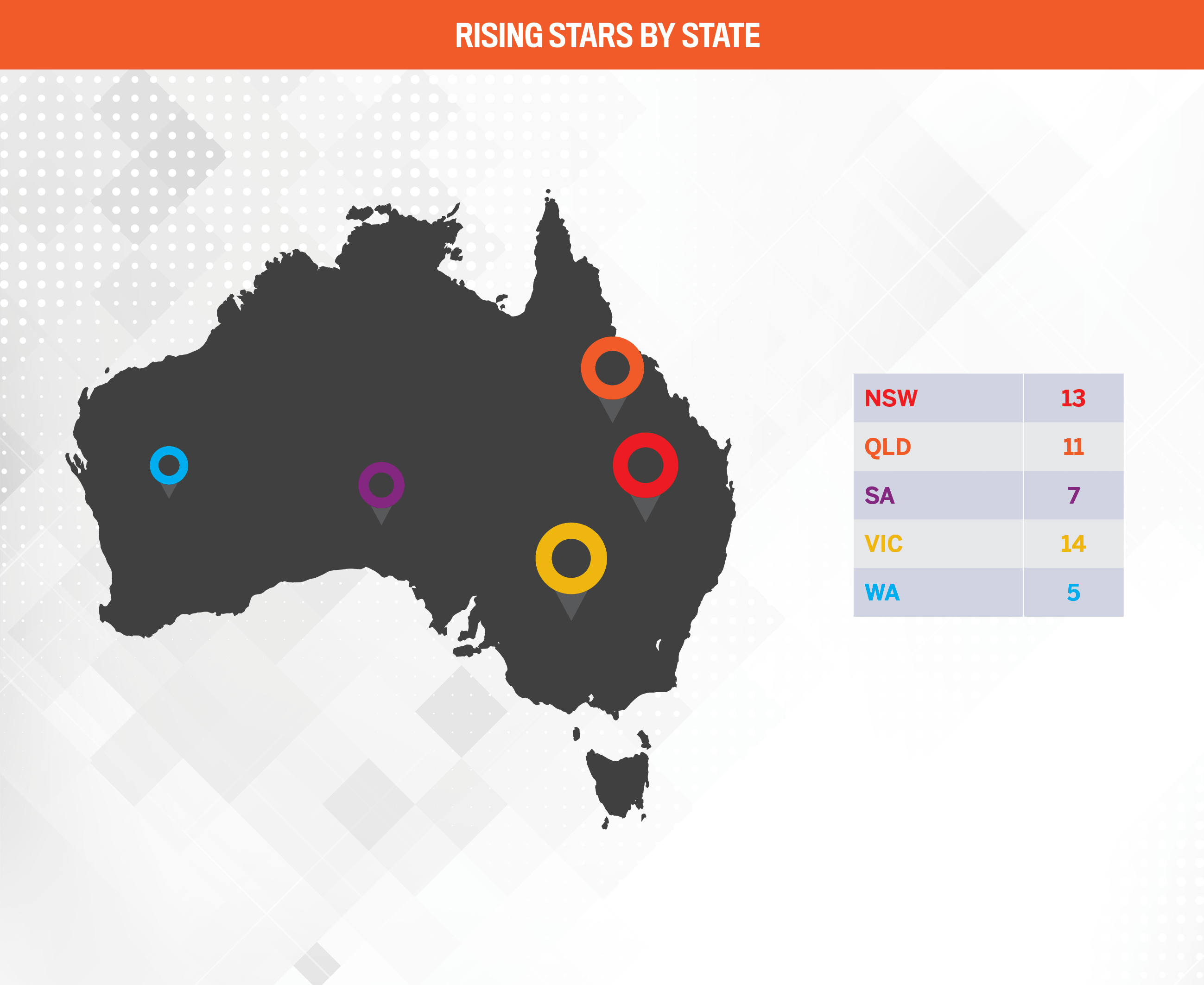
Recent successes of 2025’s Rising Stars
Gannon, who has a master’s degree in educational leadership, was on the path to becoming a physiotherapist and was working as a National Rugby League referee when he realised teaching was what motivated him.
Over the past 12–18 months, Gannon has been an ardent promoter of student agency.
“I have worked alongside staff to create more opportunities for students to take ownership of their learning,” he says.
His initiatives include:
-
bringing students into collaborative planning meetings with staff to reflect on learning experiences and co-design future learning experiences
-
redesigning parent-teacher interview structure to focus on three-way conferences, placing student goal setting and ownership at forefront
-
enhancing visible thinking strategies and fostering student curiosity through quality inquiry, ensuring learning is meaningful and student driven
He’s also played a significant role in the year-long Who We Are Unit of Inquiry, a program collaboratively developed by the school’s staff.
Gannon says, “It integrates the new Personal Development, Health and Physical Education syllabus to promote student wellbeing, self-awareness and identity, giving students the tools to develop a stronger sense of who they are and how they engage with the world. By embedding this across the year, we have provided ongoing, meaningful opportunities for students to explore their personal growth, relationships and place within the community, rather than limiting these discussions to a single unit of study.”
Another area Gannon has taken significant leadership in is St Gregory’s transition from a two-stream to a four-stream junior school next year. This has required strategic leadership in communication and stakeholder engagement, ensuring parents, staff and students are well informed, supported and excited about the changes.
“I have worked to foster clarity, transparency and collaboration throughout this process, ensuring our community remains engaged and confident in the school’s direction,” he says.
Rouillon redesigned and led an innovative writing program underpinned by deep learning principles, to develop students' critical thinking, creativity, communication and collaboration skills. She coordinated a partnership with a robotics company to guide students through the design process of creating functional robotic models. This served as the foundation for a persuasive writing unit, where students developed advertisements in oral, written and digital formats to promote their robotic designs.
“To further enrich the program, I collaborated with an Apple consultant to enhance my proficiency with applications such as GarageBand,” she says. “I then transferred this knowledge to students and colleagues, teaching them to use the platform to create compelling jingles that accompanied their digital advertisements.”
The Rising Star further embedded digital technology by helping students utilise apps such as Kid Geni to translate written descriptions into vivid, AI-generated visuals and New Arc to transform hand-drawn designs into digital creations. Students were able to bring their ideas to life and connect their creativity with real-world applications.
She says, “This multi-modal approach integrated technology, music and writing, empowering students to creatively express their ideas while refining their communication skills and building confidence in their writing.”
The outcomes that have been delivered are:
-
students flourishing creatively
-
advanced writing and digital literacy skills
-
greater self-confidence
“By embedding digital learning into classroom practices, I have ensured that all learners feel engaged, successful and prepared for the future,” says Rouillon.
Being proactive is a trait of Cammarano. As student wellbeing program and coordinator, she has booked external organisations a year in advance to facilitate workshops including:
-
Tomorrow Man (redefining masculinity)
-
Headspace (mental health services)
-
Pat Cronin Foundation (social violence prevention education)
-
Elephant Ed (sex education)
“I’m really hoping that the students will remember these experiences beyond their secondary school years and that they feel supported by the college in becoming the best version of themselves,” says Cammarano.
Personal professional development has been O’Brien’s focus. She completed a master’s degree in education (leadership) at Queensland University of Technology.
She says, “I also led two professional development sessions for colleagues, focusing on technology integration and the use of AI to enhance teaching practices. Additionally, I have continued to mentor pre-service teachers and early-career teachers, providing guidance and support as they navigate the early stages of their careers.”
On top of this, O’Brien has taken charge of the development and delivery of an innovative telescoping program to successfully support the acceleration of four Year 9 students in mathematics. She led the creation of a parallel curriculum so the group could study two-year levels at once and a subsequent evaluation of the program. O’Brien taught the parallel curriculum in Year 9 and supported colleagues in preparing the curriculum for students in Year 8.
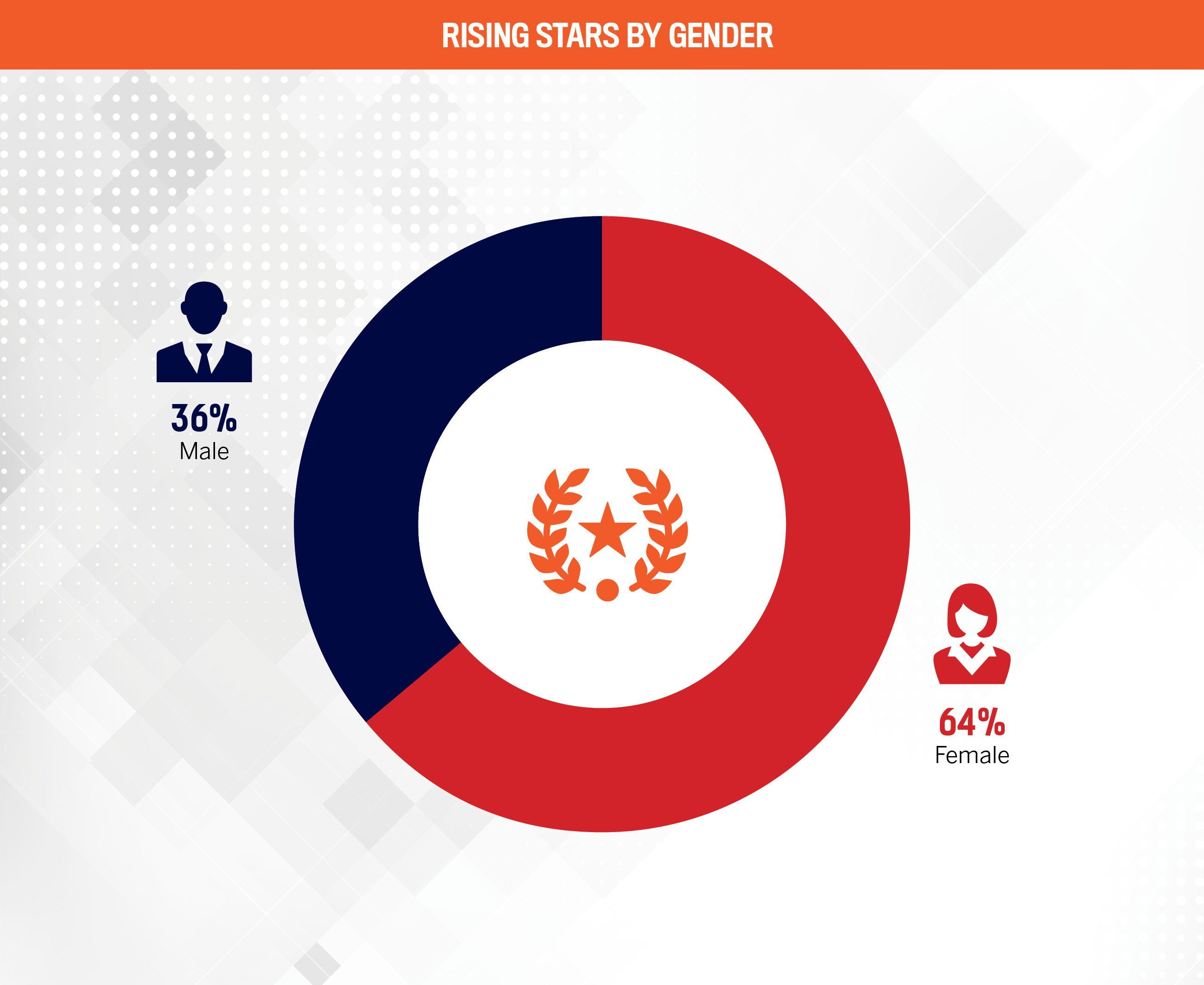
Next step for the Top Teachers and Educators in Australia Under 35
Despite only being six years into her career, O’Brien has her sights on what she wants to achieve.
Active beyond the classroom, she is a teacher assistant for the school’s Queensland Girls Secondary Schools Sports Association swimming team and a house leader. She coached three students to successfully compete in the World Scholar’s Cup, Auckland Global Round by:
-
guiding the girls to conduct research
-
mentoring them on debating and public speaking skills
-
supporting them to develop teamwork, collaboration and critical thinking
“The next step in becoming the leader I aspire to be is to take on greater responsibility within middle leadership”, she says. “I am also working towards certification as a Highly Accomplished Teacher, which I hope will further enhance my credibility, leadership influence and ability to drive positive change in my school community.”
Adopting a similar mindset is Rouillon, who is involved in a mentorship program and plans to continue collaborating with colleagues and participating in workshops to deepen her understanding of pedagogy, technology integration and effective leadership strategies.
She says, “I aim to focus on strengthening my reflective practices by actively seeking feedback from both peers and students. This will help me gain a clearer understanding of my strengths and areas for growth, allowing me to continually improve as a leader and educator.”
While Gannon has begun mentoring and developing future leaders. However, he is committed to continuing to engage with mentors who have guided his own career.
“These conversations challenge my thinking, refine my leadership approach and ensure I remain a learner at heart,” she says.
His vision is that strong schools are built on cultures of shared leadership, where teachers feel empowered to lead in their own ways. This is why he wants to foster collaboration, innovation and commitment.
And he has an ambition where he can implement all of these principles.
“My aspiration is to one day serve as a head of junior school, where I can further drive student-centred learning, staff development and community engagement on a whole-school level,” says Gannon. “I want to lead in a way that ensures every educator and student feels seen, valued and inspired to grow.”
The Top Teachers and Educators in Australia Under 35
- Abi Hails
Teacher
Lindisfarne Anglican Grammar School - Adele Stramare
Primary Teacher
Rostrevor College - Aladdin Watson
Wellbeing Leader
Roma Mitchell Secondary College - Alisha McMullen
Junior School Teacher
Penrhos College - Andi Pegler
Teacher
Dara School - Andrew Smale
Head of House and VCE Psychology and Chemistry Teacher
Huntingtower School - Candace Neville
Head of Digital Integration and Innovation
John Paul College - Carlo Librino
Director of Identity and Mission
St Paul’s College - Chantal Young
Assistant Head of Social Science
Ascham School - Charles Fedor
HASS Teacher, Head of Debating and Oracy Arts Coordinator
Guildford Grammar School - Chloe Aldred
Teacher
Brisbane Grammar - Daniel Forlano
Head of House
Seton Catholic College - Emily Rizzardo
Classroom Teacher
St John XXIII Primary School - Emma Stafford
House Representative and English, HASS and RE Teacher
Holy Cross College - Francesca Christie
Assistant Deputy Principal, Catholic Identity
Irene McCormack Catholic College - Genevieve Easton
Year 5 Classroom Teacher
Stuartholme School - Georgia Simmonds
Head of Department
The Gap State High School - Grace Gonzalez
Learning Management System Leader
Mount St Joseph Girls’ College - Harrison Smith
Curriculum Leader – Humanities and Social Sciences
Mt Maria College Mitchelton - James Ince
Teacher – Mathematics and Science and House Tutor
Lauriston Girls’ School - Jamie Hayter
Learning Area Leader – English
Mercedes College - Jennifer Radford
Teacher
Corinda State High School - Jessica Simons
Head of Digital Learning
Xavier College - Jordan Bailey
Vet Coordinator
Carinity - Jordan Gregson
Year 4 Coordinator
Ascham School - Kellie Presnell
Teacher – Mathematics and Physical Education and Acting Curriculum Leader – Health and Physical Education
Lauriston Girls’ School - Kristy King
Curriculum Leader – English and Languages
Mt Maria College Mitchelton - Maddy Brown
Teacher
St John XXIII Primary School - Maeve Thomson
English Teacher
Canterbury Boys High School - Maeve Wyse
Teacher
The Gap State High School - Makiko Ryland
Teacher
Kincoppal-Rose Bay - Mariah Dhar
Outdoor Education Coordinator and HSIE Teacher
Snowy Mountains Grammar School - Marty Pender
Year 12 Growth Coach
St John XXIII Catholic College - Melissa Barber
Highly Accomplished Mathematics Teacher and Head of House
Sunshine Coast Grammar School - Natalie Presutti
Jumpstart Coordinator and Outdoor Education Teacher
Penola Catholic College - Nick Macgregor
Head of Science
Sacred Heart College - Rebecca Gratton
Mathematics Department Head
Snowy Mountains Grammar School - Samantha Warren
English Learning Area Leader
Aquinas College - Thomas Allott
Head of Mathematics
St Michael’s Grammar School
Schools
- Aquinas College
- Ascham School
- Bishop Druitt College
- Brisbane Grammar School
- Canterbury Boys High School
- Carinity
- Corinda State High School
- Dara School
- Guildford Grammar School
- Holy Cross College Ellenbrook
- Huntingtower School
- Irene McCormack Catholic College
- John Paul College
- Kincoppal-Rose Bay
- Lauriston Girls’ School
- Lindisfarne Anglican Grammar School
- Marcellin College
- Mercedes College
- Mount St Joseph Girls’ College
- Mt Maria College Mitchelton
- NSW Department of Education – Bomaderry High School
- Oakleigh Grammar
- Penola Catholic College
- Penrhos College
- Roma Mitchell Secondary College
- Rostrevor College
- Sacred Heart College
- Seton Catholic College
- Snowy Mountains Grammar School
- St Andrew’s Cathedral School
- St Gregory’s College
- St John XXIII Catholic College
- St John XXIII Primary School
- St Margaret’s Anglican Girls School
- St Michael’s Grammar School
- St Paul’s College
- Stuartholme School
- Sunshine Coast Grammar School
- The Gap State High School
- Westbourne Grammar School
- Xavier College South Australia
Methodology
The Rising Stars 2025 report was launched with a call for entries from the entire Australian K–12 education sector. To be eligible, candidates for the Rising Stars award must be aged 35 or younger, be working in a role related to the K–12 education sector, and have demonstrated effective leadership, innovation, and achievement in their career to date. Both self-nominations and nominations on behalf of colleagues were accepted.
In addition to recognising individual Rising Stars, the School Leadership Award was introduced to celebrate the schools fostering these exemplary young talents. This award acknowledges schools that provide an environment where young educators thrive, support teachers to excel and demonstrate outstanding leadership, innovation and achievement in nurturing early-career educators.
Winners of both awards were judged on the substance of their nominations, with a particular focus on specific outcomes achieved and supporting data. This included evidence of effective leadership practices, professional development opportunities, and initiatives fostering teacher success and student growth.
The Educator team conducted a meticulous review of all nominations to ensure the awards highlighted the very best contributions to the Australian K–12 education sector.



